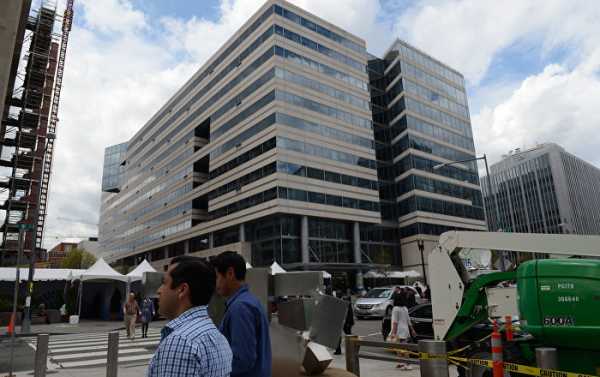
International financial institutions are boosting their support for the Argentine government ahead of the highly contested general election later this year, amid the debated issues of national sovereignty, debt problems, and an uncertain economic future.
Kristian Rouz – The International Monetary Fund (IMF) has agreed to send up to $5.4 bln is cash to Argentina under a stand’by loan facility to help the South American nation mend its ailing economy, caught in the crossfire of a currency crisis. The assistance package come just weeks after the World Bank said it would allocate $500 mln in development funds to Buenos Aires.
The IMF says its $5.4-billion package could help Macri improve the nation’s public finances, encourage international investors, and boost Argentina’s economic output, which could help the nation reach positive GDP growth by the end of this year.
“The Argentine authorities continue to show a strong commitment to their economic policy program, meeting all the applicable targets under the Fund-supported program,” the IMF said in a statement.
The announcements come just months ahead of the presidential elections, slated for 27 October, as the chances of sitting centre-right President Mauricio Macri to get re-elected still appear bleak.
Former President Cristina Fernandez de Kirchner – who is a running mate to centre-left candidate Alberto Fernandez – is vowing to fix Argentina’s economy with an updated version of her policies known as Kirchnerismo.
The centre-left tandem of Kirchner and Fernandez (the two are not related) based their economic agenda off the economic nationalism and a stiff opposition to international financial institutions – which some believe helped rebuild the Argentine economy in the early 2010s.
“The objectives that were set at the time of granting the loan have been absolutely distorted,” Alberto Fernandez says. “Public debt increased, as did inflation, unemployment and poverty, while GDP fell by 5.8 percent at the end of the first quarter of this year. It is more than evident how far Argentina is from starting to grow if this path is followed,”
However, Macri enjoys warm ties with US President Donald Trump, and his business-friendly agenda is viewed favourably by international investors – despite the Argentine economy being in a recession since last year.
Yet, despite praising Macri, international credit rating agencies are still warning investors against doing business in Argentina.
The nation’s GDP contracted by 4.7 per cent at the height of the currency crisis in 2Q18, after which the recession has become midler, with the Argentine economy shrinking by 0.2 per cent in 1Q19.
Still, the Fernandez-Kirchner alliance is leading Macri 42.5-to-34.5-per cent as of last month.
The Fund’s $57-billion assistance programme for Argentine has several policy conditions attached to it, which include cuts to public spending. Kirchner argues Macri’s austerity measures have impaired the purchasing power of Argentine households and undermined business revenues.
Additionally, the declining quality of life and a drop in effective consumer demand have failed to translate into a lower inflation, which is still riding high at 57.3 per cent as of May.
Argentina should “stop trusting neo-liberal theories, and realise what happens when neo-liberals take over,” Fernandez said, taking direct aim at Macri as his open-market policies.
However, officials in Buenos Aires say the Argentine economy has shown signs of improvement this year, not least due to the massive aid from the IMF and World Bank. The Macri cabinet, however, fell short of explaining how Argentina will pay back its debt over the years, if not decades, to come.
Last week, Argentina posted a $710.9-million surplus in the first half of this year, outpacing even the IMF’s projections. The Fund praised the Macri government following the announcement.
“While it has taken time, these policy efforts are starting to bear fruit,” the IMF said. “Financial markets have stabilised, the fiscal and external positions are improving, and the economy is beginning a gradual recovery from last year´s recession. The Fund is strongly supportive of these important policy efforts.”
The Fernandez duo, however, remains highly critical of the IMF assistance programme. Alberto Fernandez believes the conditions of the stand-by agreement were unfavourable for Argentine, and said he would renegotiate the deal after getting elected in October.
Meanwhile, Macri has reaffirmed his commitment to working with the IMF and World Bank to achieve a greater integration of Argentine into the global system of trading relations.
Sourse: sputniknews.com






